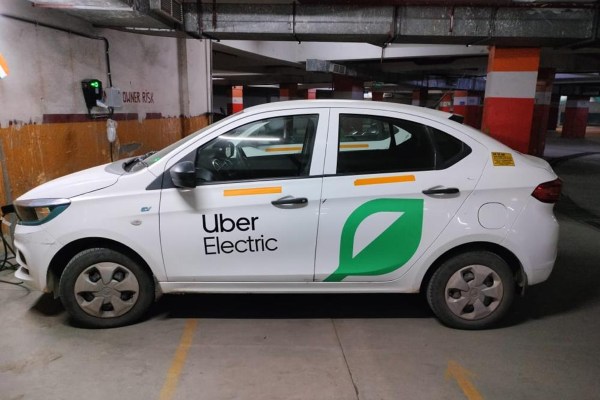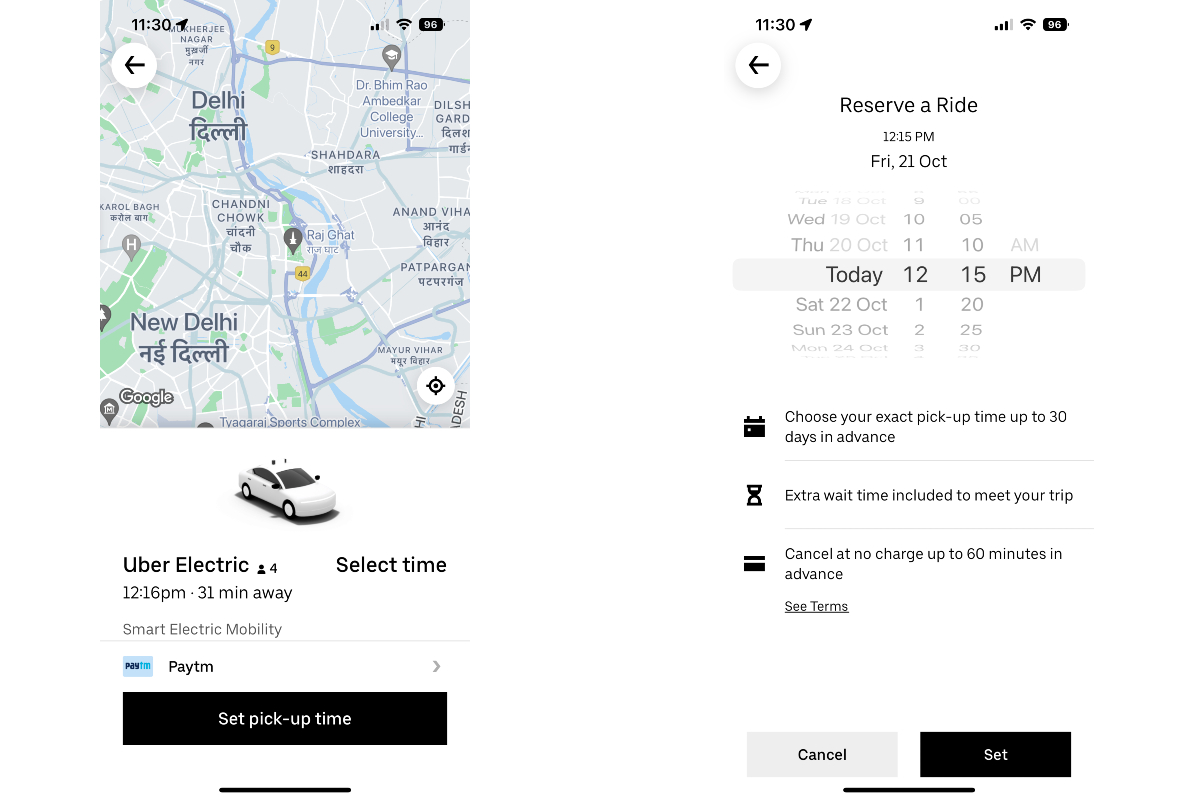[ad_1]

Uber has started offering electric vehicles to customers in certain parts of the Delhi-NCR region and says it will be expanding its efforts over the coming months. The electric cabs are currently only available for pre-scheduled trips.
“As the leading mobility app in India, we are committed to supporting the Indian government’s emission goals. Expect to see more electric vehicles — be they two, three or four-wheeled — across Indian cities in the coming months,” the spokeswoman said in a statement emailed to TechCrunch in response to a query.
The company did not share how many EV cabs were operational on its platform in India, but insisted that it is working with multiple fleet partners, OEMs and charging infra providers “to gradually build the EV business in a sustainable manner.”
Uber’s move comes as India pushes ride-hailing firms to electrify a significant portions of their fleets over the next few years. Reuters reported in 2019 that the Indian government had ordered Uber and its arch-rival Ola to convert 5% of their fleet by 2022 and make it 40% by April 2026. The push came amid New Delhi’s pledge to reduce dependency on oil imports and cut air pollution to meet its commitment to 2015 Paris climate change treaty.
The electric cabs are available through the Reserve feature on the app, allowing customers to choose a pick-up time for the ride up to 30 days in advance. Users can cancel their scheduled trips 60 minutes before their trip for no charge, according to description on the app.

Image Credits: TechCrunch
Both the federal government and various state governments in India have started to offer incentives to customers and vendors in recent years to increase the adoption of EVs. The state government in Delhi, for instance, says it has installed 1,000 EV charging points across the city. It also introduced the Delhi EV policy in August 2020, as part of which it gives subsidies for installing charging stations. The city is aiming to get 18,000 EV charging points in the next three years.
Ola — which counts SoftBank, Temasek Holdings, Hyundai Motor and Kia among its investors — also has a separate electric mobility unit to build EVs. The company initially introduced its EV scooters in the market and says it has plans to expand that business to include an electric car in 2024.
Ola has also tried to enter the market of EV cabs in India. In 2018, it launched a program called “Mission: Electric” to bring electric cabs, electric auto rickshaws, electric buses, rooftop solar installations, charging stations and battery swapping experiments in the country.
Other than Uber and Ola, Gujarat-based BluSmart Electric Mobility is also in the race for EV cabs in the South Asian market. The company, which raised $25 million from BP Ventures earlier this year and is eyeing to raise $250 million, has an all-electric fleet as a significant difference over the existing two giants. It also claims to have completed over 2.5 million all-electric trips and has over 900,000 app downloads since its launch in 2019. BluSmart’s reach is, however, currently limited to Delhi-NCR and Bengaluru.
Uber has been offering EVs in the U.S. and Europe for some time. The San Francisco, California-headquartered company runs an Uber Green program to offer EVs on its fleet and aims to become a zero-emission platform by 2040. It has also set aside $800 million to encourage drivers on its platform to start using EVs by 2025.
[ad_2]
Source link
